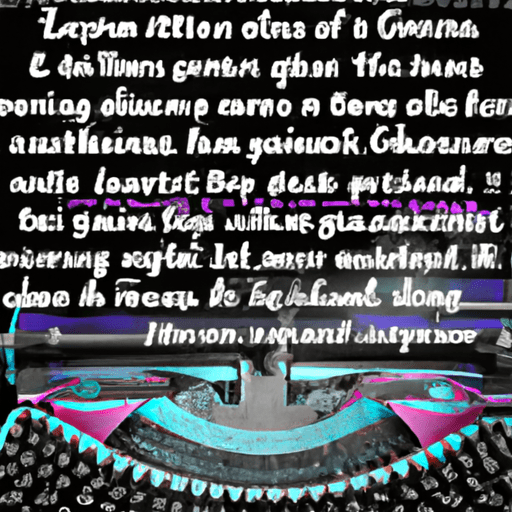H1: The Power of Truth, Compassion, and Usefulness in Writing
H2: Ursula Le Guin’s Guiding Principles
Fabled author Ursula Le Guin had a sign over her desk that served as a compass for her writing. It read:
Is it true?
Is it necessary or at least useful?
Is it compassionate or at least unharmful?
These simple, yet profound questions encapsulate the essence of what good writing should strive to be. In a world bombarded by information overload and sensationalism, Le Guin’s guiding principles are more relevant than ever. Let’s delve into the power of truth, compassion, and usefulness in writing, and how they can shape and elevate the impact of our words.
H2: The Importance of Truth
In a world often plagued by fake news and misinformation, the pursuit of truth is paramount. As writers, it is our responsibility to dig deep, research thoroughly, and present accurate and reliable information. The truth may not always be easy to find, but it is worth the effort.
When truth becomes the bedrock of our writing, we establish a foundation of trust with our readers. They rely on us to provide them with reliable information that they can use to make informed decisions. Whether it’s in journalism, non-fiction, or even fiction, the power of truth cannot be underestimated. It brings credibility to our work and sets us apart from those who prioritize sensationalism over accuracy.
H2: The Need for Usefulness
As writers, we have the privilege and opportunity to shape perspectives, inspire change, and provide practical guidance. But how often do we stop and ask ourselves if our words are truly necessary or useful? Are we simply adding to the noise, or are we contributing something meaningful?
Usefulness rests on the ability to offer insights, solutions, and practical advice that can improve the lives of our readers. It means understanding their needs, concerns, and desires and tailoring our content to address them. Writing that is useful provides value and helps readers navigate through the complexities of life.
By prioritizing usefulness, we can steer clear of clickbait and hollow content, instead delivering substance and expertise. Whether we’re writing a how-to article, a product review, or even a fictional story, usefulness ensures our words resonate with our audience and leave a lasting impact.
H2: The Empathy of Compassion
In an age where divisiveness and polarization are prevalent, it’s more important than ever to approach writing with empathy and compassion. Compassionate writing aims to understand and connect with the readers on a deep emotional level. It seeks to bridge gaps, promote understanding, and foster unity.
When our words are infused with compassion, we demonstrate an understanding of the human experience and the ability to put ourselves in the shoes of others. This applies to both non-fiction and fiction writing. By creating relatable characters with struggles and triumphs, we invite readers to empathize and reflect on their own lives.
Compassionate writing also promotes inclusivity and diversity. It challenges stereotypes and biases, encouraging readers to embrace different perspectives and celebrate the richness of human experiences. It is through compassion that we can contribute to a kinder, more empathetic world.
H3: The Intersection of Truth, Compassion, and Usefulness
The power of truth, compassion, and usefulness lies in their synergy. When these three elements converge, writing has the potential to inspire, educate, and transform. By adhering to Ursula Le Guin’s guiding principles, we can create content that resonates with readers, engages their emotions, and offers practical value.
As writers, we have a unique role in society. We possess the ability to shape opinions, challenge norms, and advocate for change. By embracing truth, compassion, and usefulness, we can channel this power responsibly and positively influence the world around us.
In conclusion, the sign over Ursula Le Guin’s desk serves as a reminder to all writers. The pursuit of truth, compassion, and usefulness is not an easy task, but one that is necessary for the greater good. Let us remember these guiding principles and infuse our words with authenticity, empathy, and practicality. In doing so, we can leave a lasting impact and contribute to a world that is both enlightened and uplifted.

